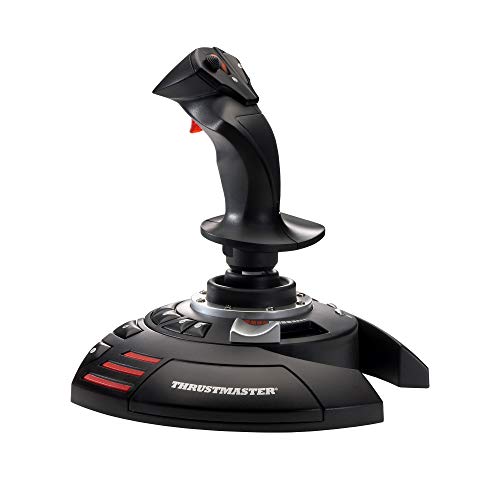Thrustline Aerospace Astron Sprite (PP)
Thrustline Aerospace - Astron Sprite {Kit}
Contributed by Michael Morley
| Construction Rating: | starstarstarstarstar_border |
| Flight Rating: | starstarstarstarstar |
| Overall Rating: | starstarstarstarstar_border |
| Manufacturer: | Thrustline Aerospace |
Brief:
The Astron Sprite was sold by Estes from 1964 to 1973. The Sprite was a small,
three finned rocket with a ring and and fancy caps at the ends of its fins
giving it a neat '50s/'60s look. It managed to be cute and futuristic at the
same time.
I had an Astron Sprite when I was six or seven years old. My parents had mailordered me a starter set from Estes (launch pad, Astron Alpha, and miscellaneous supplies) along with a Gemini-Titan. If I remember right, we got the Sprite (original retail price $0.75!) for free because our order was over a certain amount.
The original Sprite used "Series III" engines, which were the same diameter (18mm) as standard Estes engines but were an inch or so shorter in length and were distinguished with an "S" suffix in the engine code (e.g. "1/2A8-2S"). The short engine was the key to the Sprite's tumble recovery system. The ejection charge fired to kick the short engine rearward along a full-sized engine hook, venting the gas out a ¼inch hole in the body tube. This shifted the center of gravity aft of the center of pressure, causing the rocket to become unstable and tumble gently back to earth.
My old Sprite flew on standard-length engines. I didn't appreciate what the "S" in the recommended engine code meant, and it managed to survive several launches despite the fact that using a full-size engine changes the Sprite from "tumble recovery" to "lawn dart recovery!"
I was out of the hobby until my 13-year old joined his school's rocket club. When it came time to build rockets again, I started with my Father's Day present, a "parts pack" kit of the Astron Sprite from Thrustline Aerospace.
Construction:
The Thrustline kit is just what the name implies: a package of all the parts
necessary to build an Astron Sprite. There are no plans in the kit, but the
original 1964 plans are available for download from
Jim Z's or
Shasta's
sites. There is also a set of plans drawn by Peter Alway that I've seen and
downloaded in PDF format, although I can't remember where from.
Since the "Series III" engines are no longer made, you have to improvise. One method is to use a 13mm mini engine in an adapter made from an expended 18mm engine casing. Alternatively, you can build the Sprite as a 13mm-powered streamer recovery model. Thrustline includes a 13mm motor mount and the materials for a streamer recovery system in the parts pack and doesn't drill the vent hole in the body tube so you can build the rocket either way.
Thrustline's online ordering system is easy to use, and the proprietor, John Rowan-Stern, is pleasant to deal with. The kit arrived in due course containing:
- 4" x 8" sheet of 1/8" balsa finstock
- 2¾" BT-30 body tube
- 1 3/8" long ogive balsa nose cone
- ¾" BT-70 fin ring
- standard-length engine hook
- ¾" x 2" piece of thin black cloth, to take the place of the gauze Estes originally used to hold the motor hook on the outside of the body tube
- the streamer conversion parts set (in a separate bag) consists of:
- 1¾" 13mm engine tube
- thrust block
- centering rings
- BT-30 stage coupler
- screw eye
- 16" of elastic shock cord
- 11" of Kevlar® thread
- 36" of bright green 1" wide streamer material
All materials were of excellent quality. After giving the matter quite a bit of thought, I decided to build my Sprite as a 13mm-powered streamer model. This necessitates a bit of a departure from the original Estes instructions.
The first step was to print out the Estes fin patterns, trace them onto the balsa, and cut out the fins. These were glued to the body tube with yellow glue, filleted, and sanded in the usual manner. The fins are in two parts: a regular rhomboid shape that sits between the body and the fin ring and a "fin cap" that goes on the outside of the ring. The fin cap is an irregular shape, and I actually ended up cutting four fin caps in order to get three that fit right. Fortunately, John gives his customers a generous portion of balsa sheet, so I was in no danger of running out of materials. The combination of thick 1/8" balsa and a fin ring makes for a sturdy structure for a rocket of this size and weight. Indeed, the Sprite is sturdy enough that one could perhaps leave out streamer and go to a "breakup" recovery system or even delete the recovery system entirely and depend on the "featherweight" principle.
While the glue was drying on the fins, I assembled the engine mount. There are no instructions, but it's obvious how it goes together. I tied the Kevlar® to the thrust ring, glued the thrust ring to one end of the engine tube, inserted the engine tube into the centering rings and the stage coupler, and got ready to glue the whole smash into the body tube.
At this point, I realized that between the motor tube and the ½" nose cone shoulder, there wasn't going to be much room in a 2¾" body tube for the streamer. I lopped off ¼" of the nose cone shoulder and drilled a countersink hole for the screw eye to recess it. At the other end, I set the motor mount so there was ¼" of 13mm tube protruding from the rear of the rocket. This gave just enough room for the shock cords, a 14" length of streamer (EMRR's "Streamercalc" recommended at least 13"), and one square of Estes wadding. I cut shock cords down so that my finished model has 3" of Kevlar® and 9" of elastic.
With the recovery system assembled and an engine in place, the CG came out 4" back from the nose or somewhere around the middle of the root edge of the fins. Even without doing a formal CP calculation or running a simulation, I knew this was probably not going to be stable. I added nose weight by putting a stack of four #8 washers in the countersunk hollow of the nose cone, held in by the screw eye. This shifted the balance point to the forward end of the fins, at the cost of a little breathing room in the streamer compartment.
My only complaint about construction is a lack of separate instructions for the streamer conversion. (The original Estes plans don't address that issue, of course.) I had to figure out how to make it all fit by guess and by gosh, and while it came out OK for me in spite of my lack of recent building experience, I could've used the help.
Finishing:
There are no decals available as the original rocket had none. I finished the
rocket with a solid coat of Testors bright yellow spray paint. As you can tell
from the photo, I could have done a better job of filling the nose cone but cut
me a break. After all, this was my first build in 25 years, and I last saw my
old Sprite in about 1972!
Construction Rating: 4 out of 5
Flight:
My youngest son and I flew the Sprite twice on a clear, sunny day using
½A3-2T engines.
With the balance point at the front of the fins, the rocket was very stable. All that effort with the washers paid off.
On both flights, the lightweight Sprite was a real neck snapper. Once it cleared the launch rod, I lost sight of it until the ejection charge fired. The performance on an A10-3T should be even more impressive.
My attempt to take a still photo of the first flight yielded a still life study of an empty launch pad with a dissipating smoke trail. I got some video of the second flight, but even there the rocket went up faster than I could track it.
Recovery:
The first flight weathercocked into a light breeze, peaked at around 100', and
recovered with no damage about ten yards upwind from the pad.
The second launch came as the wind died down. The Sprite went straight up to a noticably higher altitude (I‘m guessing 120' or better) and plopped down in the grass less than ten feet from where it started. The streamer separated from the shock cord at ejection, but the rocket was otherwise unharmed and will be easily repaired.
The streamer recovery system works well for this rocket. I was concerned that I might have cut the shock cords down too much, but the length turned out to be just about right.
Flight Rating: 5 out of 5
Summary:
If, like me, you wish your mom hadn't thrown out your old Astron Sprite when
she cleaned your room, the Thrustline kit is an excellent way to recreate it.
For the not-so-nostalgic, the Sprite is an excellent entry-level craftsman kit,
and the 13mm motor mount and streamer option give you a nice small field
rocket.
Overall Rating: 4 out of 5
Sponsored Ads
 |
 |











